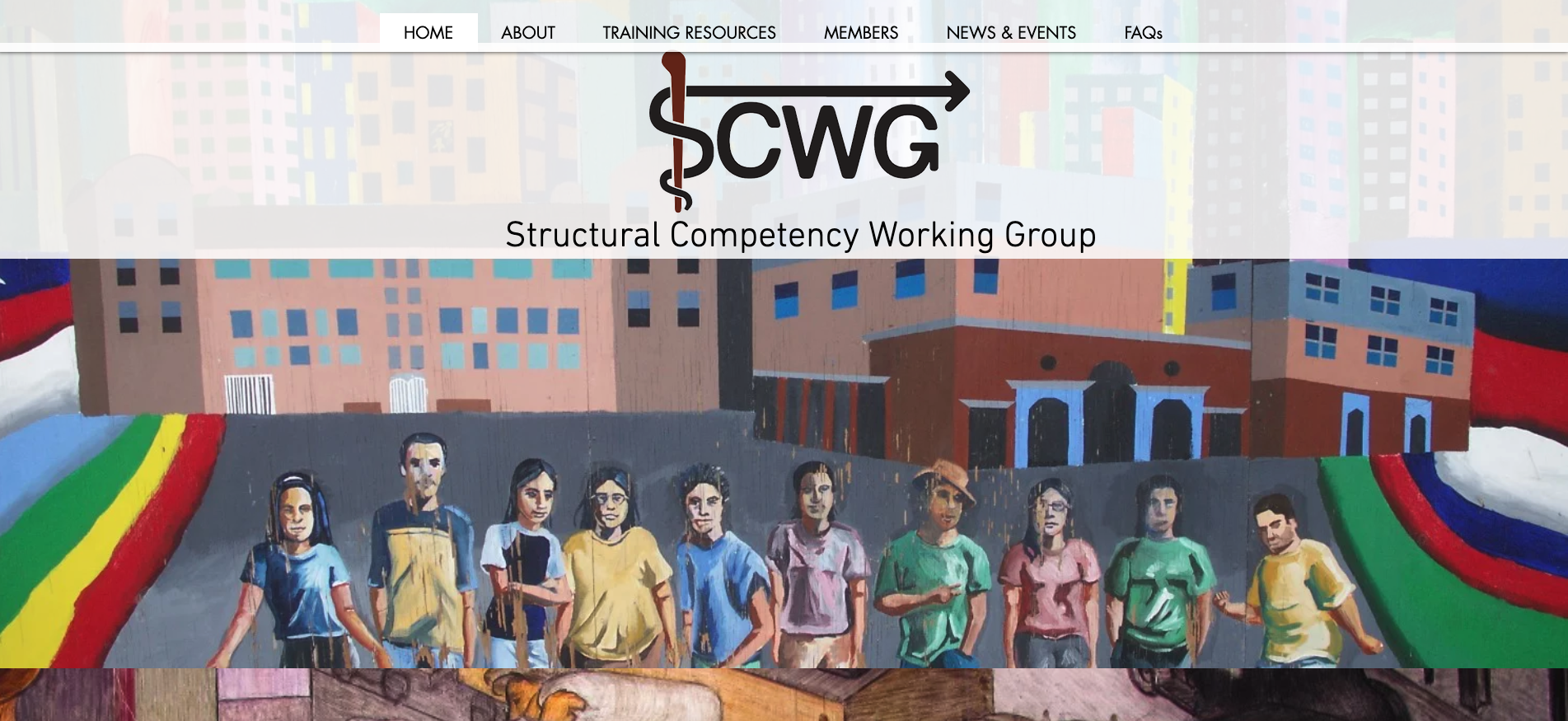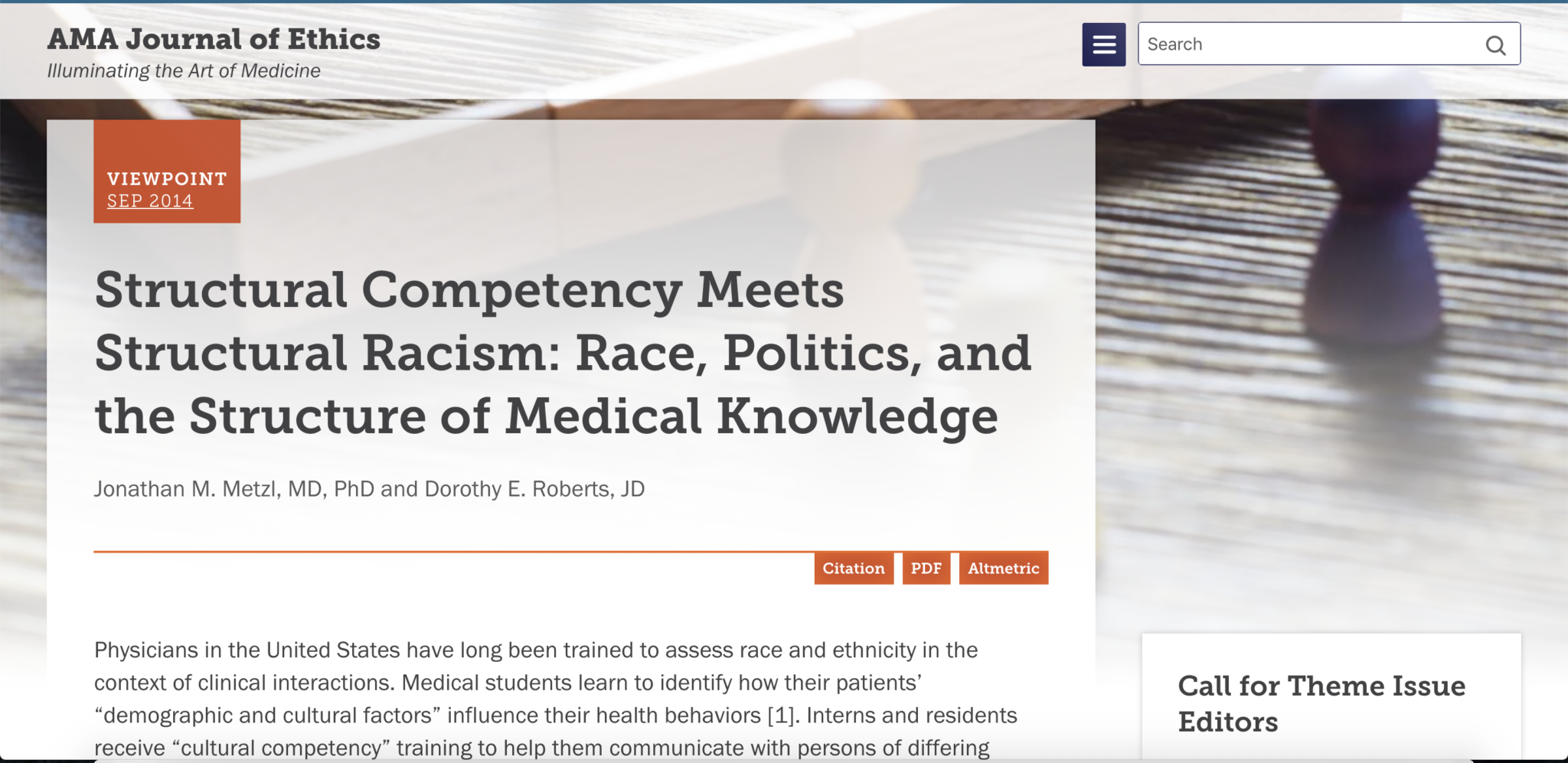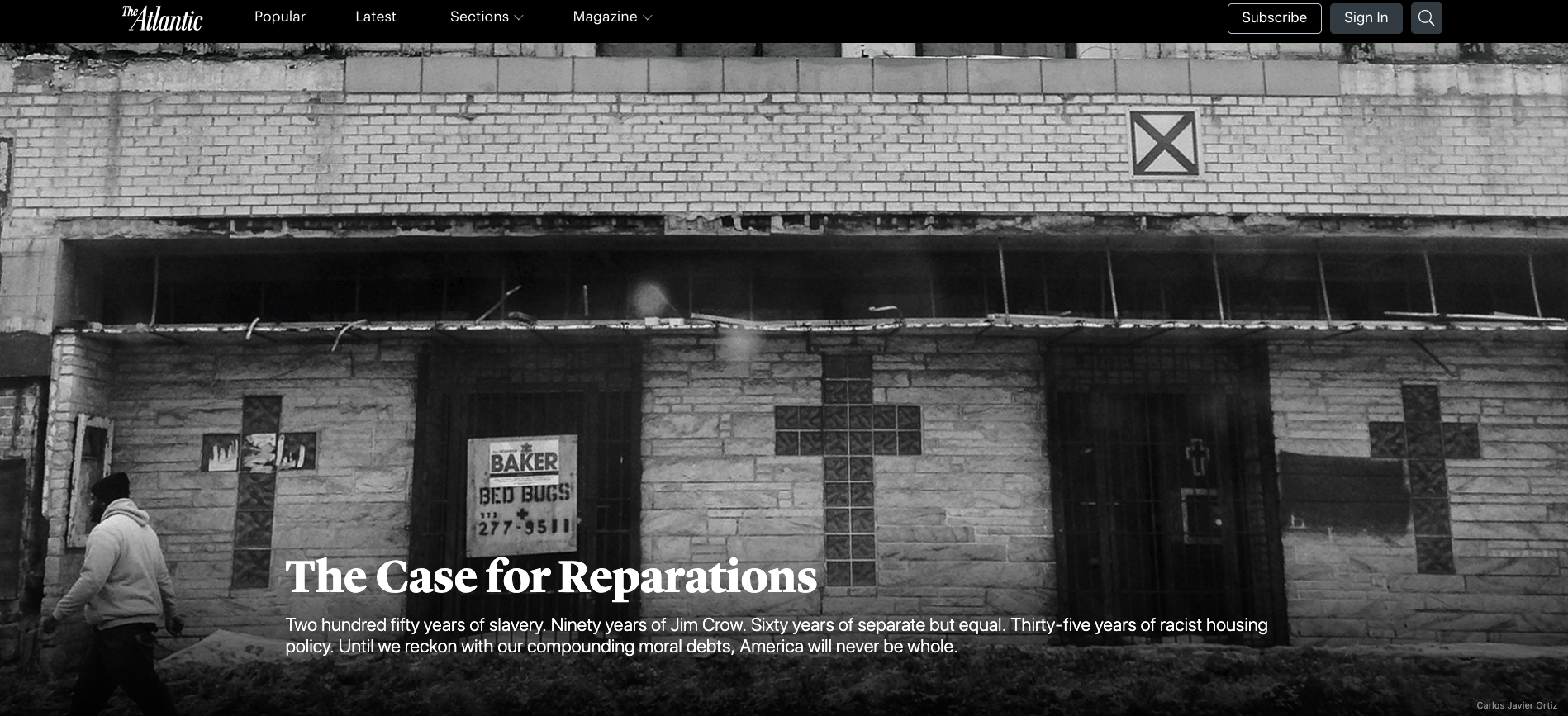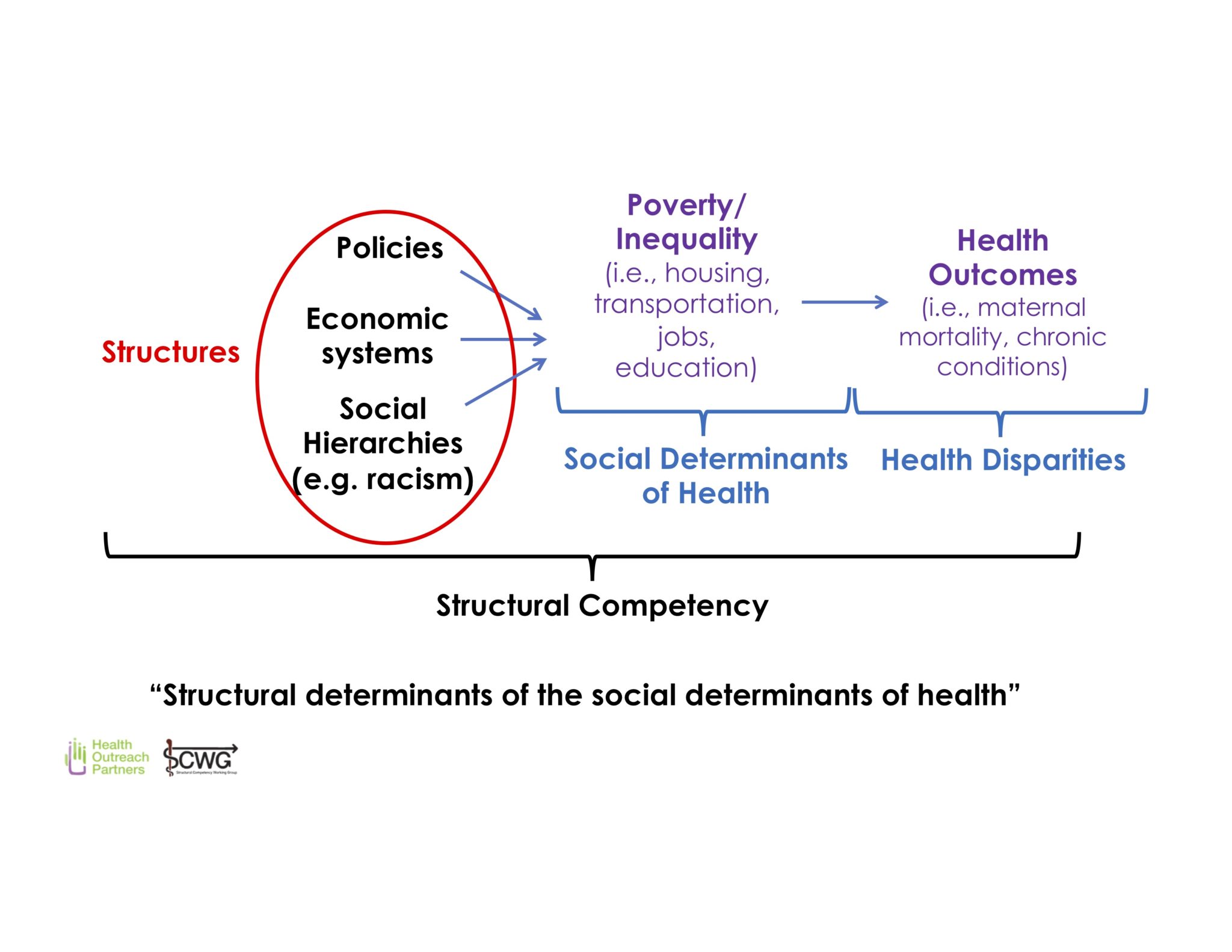“No one has a right to work with poor people unless they have a real analysis of why people are poor.”
– Barbara Major, Former Director of St. Thomas Health Clinic
HOP recognizes that the root causes of social inequities and health disparities are structural factors – policies, economic systems, and social hierarchies such as racism. We define social structures as, “the policies, economic systems, and other institutions (judicial systems, schools, etc.) that have produced and maintain modern social inequities as well as health disparities, often along the lines of social categories such as race, class, gender, sexuality, and ability.” To effectively serve their patients and communities, it’s important for health centers to build their capacity to not only describe the link between social inequities and health disparities, but to also look further upstream at the structural factors.
Resources
DEFINITION: What is Structural Competency?
Structural competency is the capacity for health professionals to recognize and respond to health and illness as the downstream effects of broad social, political, and economic structures.
VIEW RESOURCEIN THE NEWS: Structural Competency Articles
Structural competency calls for a new approach to the relationships among race, class, and symptom expression.
VIEW RESOURCEPROFILE: Dr. Jack Geiger and the Community Health Center Movement
The community health center movement in the U.S. is deeply rooted in the activism of the civil rights movement. Using the community health center model of the then-apartheid South Africa, Dr. Jack Geiger and other activists established the first two health centers in the U.S. starting in 1965 in Boston, MA and Mound Bayou, MS.
ESSAY: Structural Competency Meets Structural Racism
The structural competency framework aims to understand and address social needs and their links to race and racism. This essay from the American Medical Association Journal of Ethics highlights three historical case studies of how stigma, socioeconomic factors, and politics can shape diagnostic and treatment disparities.
ESSAY: The Case for Reparations
This Atlantic article by Ta-Nehisi Coates provides a detailed, historical account of “redlining” and its impact on U.S. black communities being systematically denied opportunities to purchase homes and create generational wealth for their families and communities.
VIEW RESOURCEFor more on Reparations: Being Black in America Is a Health Risk. It’s Time for Reparations.
CURRICULUM: A Structural Competency Framework for Recognizing and Responding to Social, Political, and Economic Systems to Improve Health Outcomes
HOP’s training curriculum on structural competency is designed to strengthen the capacity of health center staff to recognize and address patient health and illness as the product of the broad social, political, and economic systems in which people live, work, and spend their time. This training curriculum expands upon themes sometimes discussed under the rubric of cultural competency, cultural humility, and the social determinants of health.
Access the OBV Today!
The OBV is now free to access for all. Click the button below to view the frameworks and calculators for yourself.






